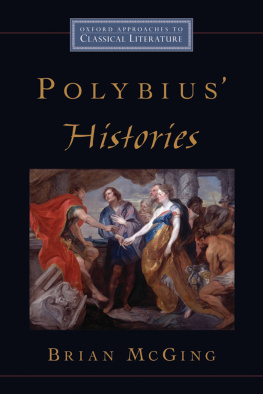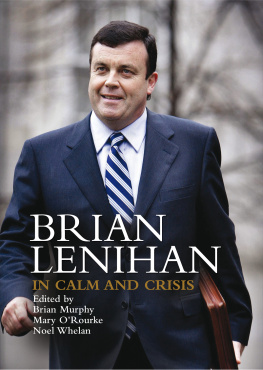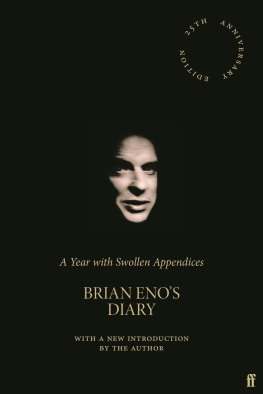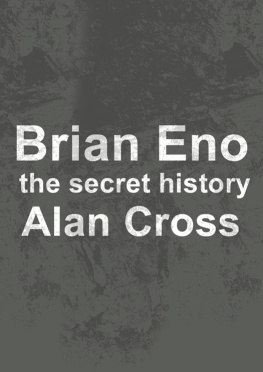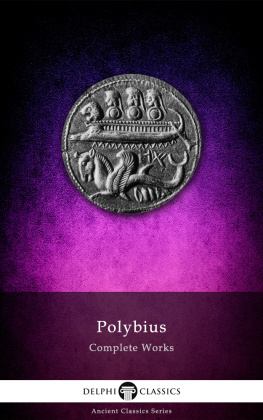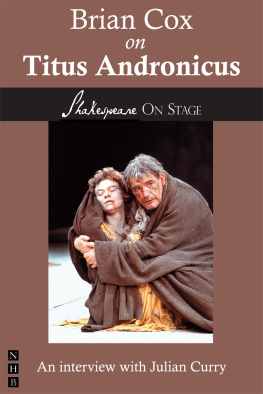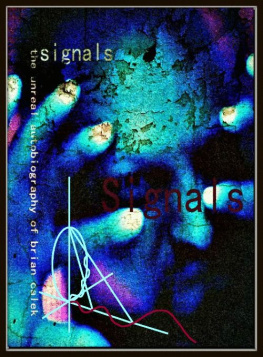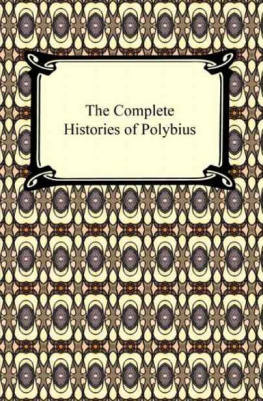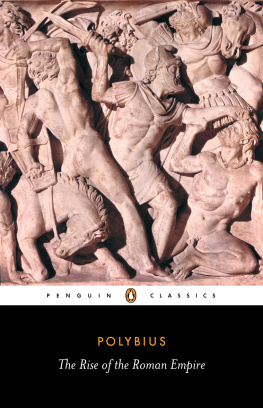McGing Brian. C. - Polybius Histories
Here you can read online McGing Brian. C. - Polybius Histories full text of the book (entire story) in english for free. Download pdf and epub, get meaning, cover and reviews about this ebook. City: New York;Oxford, year: 2010, publisher: Oxford University Press USA - OSO, genre: Art. Description of the work, (preface) as well as reviews are available. Best literature library LitArk.com created for fans of good reading and offers a wide selection of genres:
Romance novel
Science fiction
Adventure
Detective
Science
History
Home and family
Prose
Art
Politics
Computer
Non-fiction
Religion
Business
Children
Humor
Choose a favorite category and find really read worthwhile books. Enjoy immersion in the world of imagination, feel the emotions of the characters or learn something new for yourself, make an fascinating discovery.
- Book:Polybius Histories
- Author:
- Publisher:Oxford University Press USA - OSO
- Genre:
- Year:2010
- City:New York;Oxford
- Rating:3 / 5
- Favourites:Add to favourites
- Your mark:
- 60
- 1
- 2
- 3
- 4
- 5
Polybius Histories: summary, description and annotation
We offer to read an annotation, description, summary or preface (depends on what the author of the book "Polybius Histories" wrote himself). If you haven't found the necessary information about the book — write in the comments, we will try to find it.
Polybius Histories — read online for free the complete book (whole text) full work
Below is the text of the book, divided by pages. System saving the place of the last page read, allows you to conveniently read the book "Polybius Histories" online for free, without having to search again every time where you left off. Put a bookmark, and you can go to the page where you finished reading at any time.
Font size:
Interval:
Bookmark:

OXFORD APPROACHES TO
CLASSICAL LITERATURE
SERIES EDITORS
Kathleen Coleman and Richard Rutherford
OVIDS Metamorphoses
ELAINE FANTHAM
PLATOS Symposium
RICHARD HUNTER
CAESARS Civil War
WILLIAM W. BATSTONE
CYNTHIA DAMON
POLYBIUS Histories
BRIAN MCGING
BRIAN MCGING

2010

Oxford University Press, Inc., publishes works that further Oxford Universitys objective of excellence in research, scholarship, and education.
OxfordNew York
AucklandCape TownDar es SalaamHong KongKarachi
Kuala LumpurMadridMelbourneMexico CityNairobi
New DelhiShanghaiTaipeiToronto
With offices in
ArgentinaAustriaBrazilChileCzech RepublicFranceGreece
GuatemalaHungaryItalyJapanPolandPortugalSingapore
South KoreaSwitzerlandThailandTurkeyUkraineVietnam
Copyright 2010 by Oxford University Press, Inc.
Published by Oxford University Press, Inc.
198 Madison Avenue, New York, New York 10016
www.oup.com
Oxford is a registered trademark of Oxford University Press.
All rights reserved. No part of this publication may be reproduced, stored in a retrieval system, or transmitted, in any form or by any means, electronic, mechanical, photocopying, recording, or otherwise, without the prior permission of Oxford University Press.
Library of Congress Cataloging-in-Publication Data
McGing, B. C.
Polybius Histories/Brian C. McGing.
p. cm.(Oxford approaches to classical literature)
Includes bibliographical references and index.
ISBN 978-0-19-531032-0; 978-0-19-531033-7 (pbk.)
1. Polybius. Historiae. 2. History, AncientHistoriography. 3. PolybiusCriticism and interpretation. 4. PolybiusInfluence.
I. Title.
D58.P8M352010
937'.04dc22 2009042624
The late twentieth and early twenty-first centuries have seen a massive expansion in courses dealing with ancient civilization and, in particular, the culture and literature of the Greek and Roman world. Never has there been such a flood of good translations available: Oxfords own World Classics, the Penguin Classics, the Hackett Library, and other series offer the English-speaking reader access to the masterpieces of classical literature from Homer to Augustine. The reader may, however, need more guidance in the interpretation and understanding of these works than can usually be provided in the relatively short introduction that prefaces a work in translation. There is a need for studies of individual works that will provide a clear, lively, and reliable account based on the most up-to-date scholarship without dwelling on minutiae that are likely to distract or confuse the reader.
It is to meet this need that the present series has been devised. The title Oxford Approaches to Classical Literature deliberately puts the emphasis on the literary works themselves. The volumes in this series will each be concerned with a single work (with the exception of cases where a book or larger collection of poems is treated as one work). These are neither biographies nor accounts of literary movements or schools. Nor are they books devoted to the total oeuvre of one author: our first volumes consider Ovids Metamorphoses and Platos Symposium, not the works of Ovid or Plato as a whole. This is, however, a question of emphasis, and not a straitjacket: biographical issues, literary and cultural background, and related works by the same author are discussed where they are obviously relevant. Authors have also been encouraged to consider the influence and legacy of the works in question.
As the editors of this series, we intend these volumes to be accessible to the reader who is encountering the relevant work for the first time; but we also intend that each volume should do more than simply provide the basic facts, dates, and summaries that handbooks generally supply. We would like these books to be essays in criticism and interpretation that will do justice to the subtlety and complexity of the works under discussion. With this in mind, we have invited leading scholars to offer personal assessments and appreciations of their chosen works, anchored within the mainstream of classical scholarship. We have thought it particularly important that our authors be allowed to set their own agendas and to speak in their own voices rather than repeating the ides reues of conventional wisdom in neutral tones.
The title Oxford Approaches to Classical Literature has been chosen simply because the series is published by Oxford University Press, USA; it in no way implies a party line, either Oxonian or any other. We believe that different approaches are suited to different texts, and we expect each volume to have its own distinctive character. Advanced critical theory is neither compulsory nor excluded: what matters is whether it can be made to illuminate the text in question. The authors have been encouraged to avoid obscurity and jargon, bearing in mind the needs of the general reader; but, when important critical or narratological issues arise, they are presented to the reader as lucidly as possible.
This series was originally conceived by Professor Charles Segal, an inspiring scholar and teacher whose intellectual energy and range of interests were matched by a corresponding humility and generosity of spirit. Although he was involved in the commissioning of a number of volumes, he did notalaslive to see any of them published. The series is intended to convey something of the excitement and pleasure to be derived from reading the extraordinarily rich and varied literature of Greco-Roman antiquity. We hope that these volumes will form a worthy monument to a dedicated classical scholar who was committed to enabling the ancient texts to speak to the widest possible audience in the contemporary world.
Kathleen Coleman, Harvard University
Richard Rutherford, Christ Church, Oxford
The opportunity to write most of this book was provided by a years leave in 2006. The leave was paid for by Trinity College Dublins Centre for Mediterranean and Near Eastern Studies (of which I am the director), a project funded by the Irish Governments Programme for Research in Third Level Institutions. This funding has enabled us to undertake and promote exciting work that would otherwise have been impossible; and I would like to acknowledge our great debt to the Higher Education Authority for the generous support they have given us.
I have tested out various parts of this book on students, among whom I thank particularly Helen Stonehouse, Duncan Macrae, Charlotte Finnegan, Kevin McGee, and Jessie Evans. Perhaps they were just being kind to me, but they seemed to enjoy reading Polybius, an author not very commonly read on Classics set-book courses; and I certainly enjoyed their company in our Polybian investigations. I am also very grateful for the response to papers I delivered at my own institution, Trinity College Dublin, and at Manchester, Maynooth, Exeter, and Liverpool (where Bruce Gibson generously made available before publication his own excellent paper on Polybius debt to Xenophon). I am very fortunate to have had the map-drawing expertise of Patrick Florance at my disposalmy thanks to him for including me in his busy schedule. I owe most, however, both to Andrew Erskine, who kindly took the time to read and correct the whole text, an act of scholarly
Font size:
Interval:
Bookmark:
Similar books «Polybius Histories»
Look at similar books to Polybius Histories. We have selected literature similar in name and meaning in the hope of providing readers with more options to find new, interesting, not yet read works.
Discussion, reviews of the book Polybius Histories and just readers' own opinions. Leave your comments, write what you think about the work, its meaning or the main characters. Specify what exactly you liked and what you didn't like, and why you think so.

